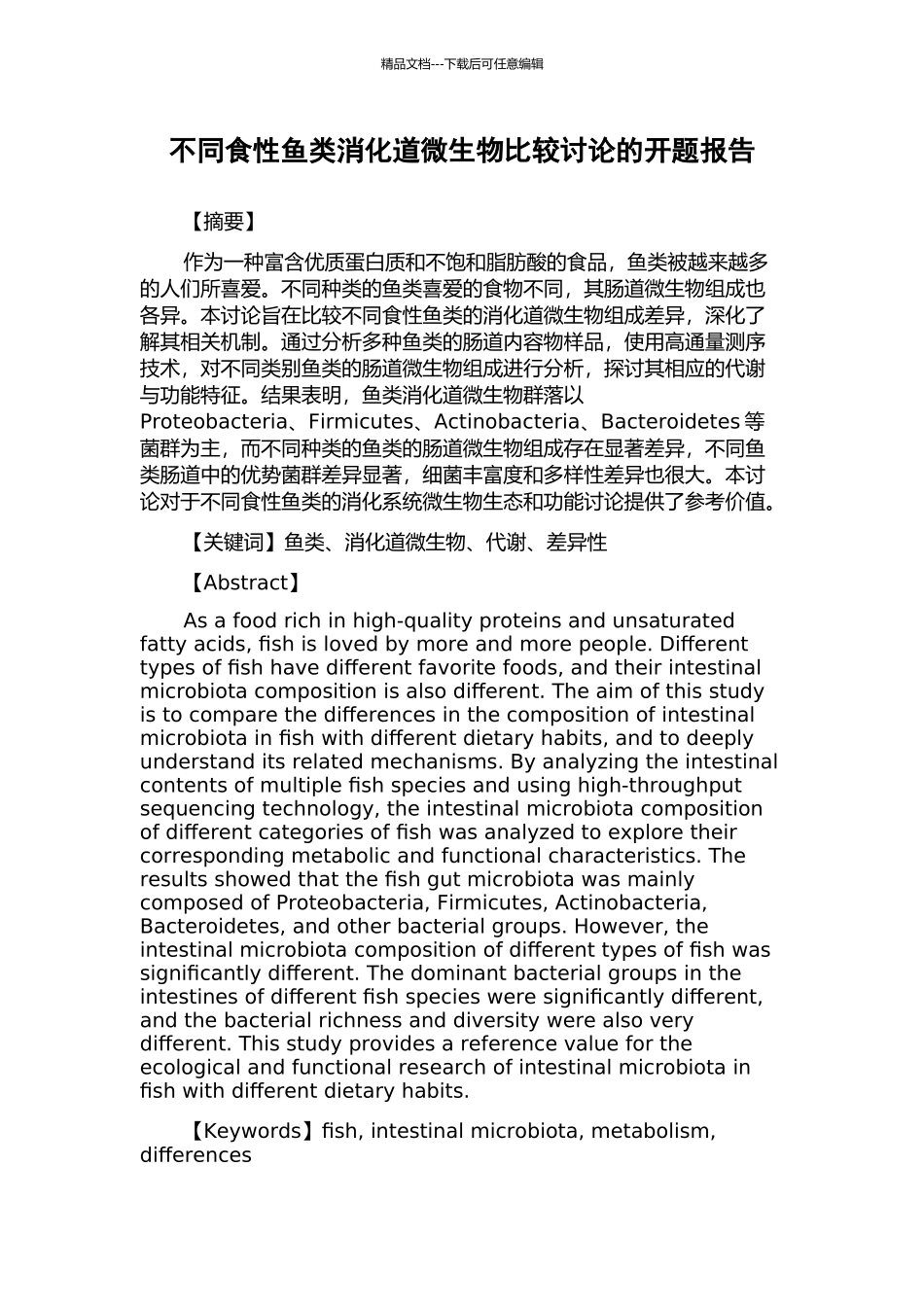精品文档---下载后可任意编辑不同食性鱼类消化道微生物比较讨论的开题报告【摘要】作为一种富含优质蛋白质和不饱和脂肪酸的食品,鱼类被越来越多的人们所喜爱。不同种类的鱼类喜爱的食物不同,其肠道微生物组成也各异。本讨论旨在比较不同食性鱼类的消化道微生物组成差异,深化了解其相关机制。通过分析多种鱼类的肠道内容物样品,使用高通量测序技术,对不同类别鱼类的肠道微生物组成进行分析,探讨其相应的代谢与功能特征。结果表明,鱼类消化道微生物群落以Proteobacteria、Firmicutes、Actinobacteria、Bacteroidetes 等菌群为主,而不同种类的鱼类的肠道微生物组成存在显著差异,不同鱼类肠道中的优势菌群差异显著,细菌丰富度和多样性差异也很大。本讨论对于不同食性鱼类的消化系统微生物生态和功能讨论提供了参考价值。【关键词】鱼类、消化道微生物、代谢、差异性【Abstract】As a food rich in high-quality proteins and unsaturated fatty acids, fish is loved by more and more people. Different types of fish have different favorite foods, and their intestinal microbiota composition is also different. The aim of this study is to compare the differences in the composition of intestinal microbiota in fish with different dietary habits, and to deeply understand its related mechanisms. By analyzing the intestinal contents of multiple fish species and using high-throughput sequencing technology, the intestinal microbiota composition of different categories of fish was analyzed to explore their corresponding metabolic and functional characteristics. The results showed that the fish gut microbiota was mainly composed of Proteobacteria, Firmicutes, Actinobacteria, Bacteroidetes, and other bacterial groups. However, the intestinal microbiota composition of different types of fish was significantly different. The dominant bacterial groups in the intestines of different fish species were significantly different, and the bacterial richness and diversity were also very different. This study provides a reference value for the ecological and functional research of intestinal microbiota in fish with different dietary habits.【Keywords】fish, intestinal microbiota, metabolism, differences
